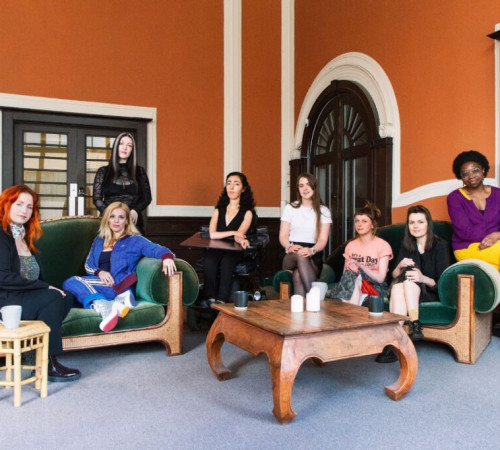 With live events, tours, recording sessions and much more within the music industry on hold during the Coronavirus pandemic, the SMIA’s Robert Kilpatrick talks about the full extent of the impact, and where industry professionals and musicians can go for help during this challenging time.
With live events, tours, recording sessions and much more within the music industry on hold during the Coronavirus pandemic, the SMIA’s Robert Kilpatrick talks about the full extent of the impact, and where industry professionals and musicians can go for help during this challenging time.
IT’S STRANGE to think back on the day I sent my team at the Scottish Music Industry Association (SMIA) home from the office and then called my mum to beg her to not go in to work. It was Thursday 12 March, and I’d spent the day reading article after article about Coronavirus at a time when it’s scale and impact (at least in Scotland) was yet to be truly seen or understood.
Fast forward 11 days to Monday 23 March, and Scotland and the wider UK entered into lockdown. Coronavirus cases – and sadly deaths – began to dominate our screens and our minds, and the reality of the situation hit home quickly as we realised that the threat was to us all. By this point, the music industry had already began to experience the multitude of challenges it faced due to the outbreak of the virus and the subsequent Government measures put in place to limit the spread.
Many music businesses have had to close for the foreseeable future. Key industry events including SXSW and The Great Escape have been cancelled, as well as festivals and events the world over. Many musicians and industry freelancers have lost all upcoming work, and many employees across the industry have been furloughed. The extent of the economic impact – and with that, the mental health impact – is hard to fully comprehend; for both individuals personally and businesses. Whilst the live sector has taken the immediate and most significant hit, as anyone who works in music knows, our industry ecosystem comprises a complex network of sectors and genres; many of which are interdependent and rely on business models which aren’t currently feasible.
Where possible, businesses have tried to adapt by moving their operations online. The SMIA quickly began utilising software including Zoom, Slack and Monday.com to bring increased communication, efficiency and productivity to our small remote team; allowing us to continue delivering projects and programmes at a time when they’ve never been needed more.
As the organisation which exists to represent and develop the music industry in Scotland, the SMIA has over 3000 members who work across a wide range of industry sub-sectors. From record labels to artist managers to promoters; our membership reflects the diverse roles across the industry, as well as the wide range of business models used to undertake commercial activity. In response to the challenges facing the sector, we quickly launched a dedicated Coronavirus page on our website, which is regularly updated and includes key information, advice and resources to help those working in the industry. Information regarding Government support and the wide range of industry crisis funds are outlined, with information/resources split into defined categories to help people find the support they need as quickly and easily as possible.
We’re in regular contact with both the Scottish Parliament and Scottish Government, and we’re also working with our contemporaries in other creative industry support organisations in Scotland to look at the wider impact on the creative industries as a whole; finding opportunities to support each other and working together on creative problem solving.
At a time of social distancing, never has there been a greater need for community, co-operation and collaboration. Mitigating the worst of the impact and re-building the cultural economy will require an unprecedented degree of inter-sector communication and co-operation; with a sharpened focus on our common, rather than competing, interests.
If you work in the industry, you can join the SMIA as a Basic Member (free) to gain access to a wide range of services to support you throughout this time and beyond. If you’re a music fan, please consider supporting your favourite artists and venues where possible. They’ve never needed your support more.








